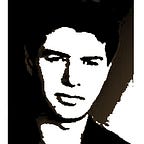Time to establish a united front for change in Iran
Masoud Dalvand: Recent developments in the Middle East, in particular with regard to the state of the regime in Iran and its Interference with its neighbors, including the support and issuance of terrorism and the instability and threats of the region by ballistic missiles of terrorist IRGC. And the announcement of a new Tramp policy in relation to the Iranian regime, firing missile to Riyadh, a criminal involvement in Yemen and Iraq, Syria and Lebanon, and a wave of protests by the Iranian people inside the country, all of these, have provided the conditions for a regime change in Iran. You can get very good information about this in the following article by Shahriar Kia, which has been written in the best possible way.
By Shahriar Kia
At the request of Saudi Arabia, foreign ministers of the Arab League gathered on Sunday, November 19th for an emergency meeting in Cairo. This assembly came at a time when the Middle East and the world over can no longer tolerate Iran’s meddling and support for terrorism and fundamentalist.
Iran’s Revolutionary Guards (IRGC) was designated as a terrorist entity by the U.S. Treasury Department, and many of its affiliated forces in the region have been targeted as a result. This has left the IRGC, considered the main entity for Tehran’s domestic crackdown and interfering in other countries, to become extremely weak.
Tehran is currently going the limits in hollow saber-rattling and behind-the-curtain talks in its attempt to return to the previous balance of power obtained after two decades of appeasement. Currently, however, there is no path left for Iran other than succumbing to the will of the international community and the Iranian people for a change.
Iranian officials and state media, extremely concerned about the Arab League conference results, have launched a dual response campaign. Minimizing the importance of the Arab League meeting on one hand and describing the session as “the most anti-Iranian meeting by the Arab League.” Tehran evaluated the summit’s objective as launching a united front to tackle Iran’s regional meddling.
Such a session against Iran’s Middle East interference is considered an important and anticipated measure. Despite the delay in such an initiative, the question is what development led to such a turn of events at this juncture in time? Has Iran’s terrorist meddling in Syria, Iraq, Lebanon and other Arab been just recently exposed?
Iran’s Kayhan daily, known as the mouthpiece of Iranian Supreme Leader Ali Khamenei, elaborated in this regard:
“The Foreign Ministers of countries such as Saudi Arabia, Bahrain, the United Arab Emirates and Djibouti (!), resorting to harsh language, launched strong attacks against Iran. The essence of these remarks were ‘Iran’s meddling in regional countries and the need to confront it;’ this is one step before declaring war.”
Another state outlet, Hemayat, posted a piece on November 21st describing the positions adopted in the Arab League sessions as supported by the international community against Iran and the Lebanese Hezbollah.
“No doubt remains that following the Arab League session the United States, France, and other European countries are gearing to slap new sanctions against Iran and Hezbollah.”
Arman, another outlet run by the Iranian regime, shed further light on Iran’s setbacks.
“Being clear which countries were set to take part in the Cairo session, it was expected from Iraq’s representative to either boycott the meeting or at least object Saudi Arabia’s policy in Yemen and Lebanon,” the piece reads.
Iraq, considered by Iran as its own backyard with a green light to impose influence and hegemony over, sending its representative to the Arab League meeting is a sign of Iran’s decreasing sway and control.
In a recent New York Times interview, Saudi Crown Prince Mohammed bin Salman said, “… we learned from Europe that appeasement doesn’t work. We don’t want the new Hitler in Iran to repeat what happened in Europe in the Middle East.”
Although various elements can be weighed regarding the timing of this Arab League session, the main factors can be cited as:
- Iran facing increasing international and regional isolation,
- increasing sanctions,
- and the growing influence and stature of Iran’s organized opposition inside the country and abroad.
International Cyrus Day, marking an ancient Iranian king and author of the world’s first ever human rights declaration, and the earthquake that rocked western Iran recent displayed Iran’s powder keg society. This as Iran’s regime on edge, to say the least.
A change in Washington’s policy vis-à-vis Tehran and imposing comprehensive sanctions targeting the IRGC, a regional consensus spearheaded by Saudi Arabia against Iran’s terrorism, and an increasing number of protests and demonstrations in cities across Iran are all indications of coming change for Tehran.
Such ground-breaking alteration has the potential of ending all crises rooted in the extremism and terrorism plaguing the Middle East and the world over, as the heart of this phenomenon beats in Tehran.
More than ever before is the world ready to establish a united international front against Iran. Kayhan daily further explained, “The region is witnessing very important developments with amazing speed. One can dare to say we are facing a sensitive period in history.” Without a doubt, Tehran has no means forward and the only path possible remains how to endure one setback after another.
Al-Riyadh daily wrote on November 24th, “Iranian Resistance President-elect Maryam Rajavi, taking part in a recent meeting with members of the People’s Mojahedin Organization of Iran in Tirana, the capital of Albania, to express solidarity with the earthquake victims inside Iran said, ‘We have gathered to once again repeat that in the ruins of repression, corruption, insecurity, and poverty where the Velayat-e Faqih has nestled, the way out and the only way out is the overthrow of this religious dictatorship.’”
Originally published at towardfreedomwithmek.blogspot.com.
